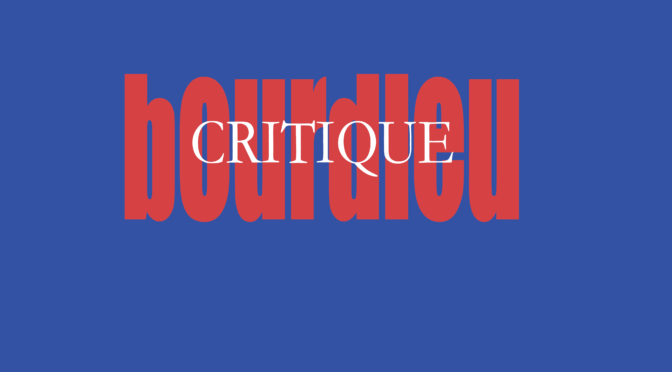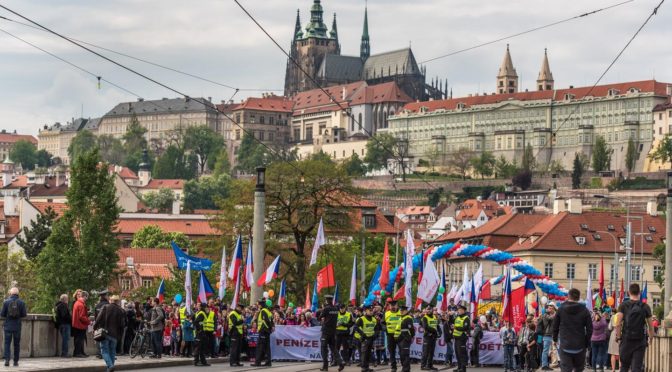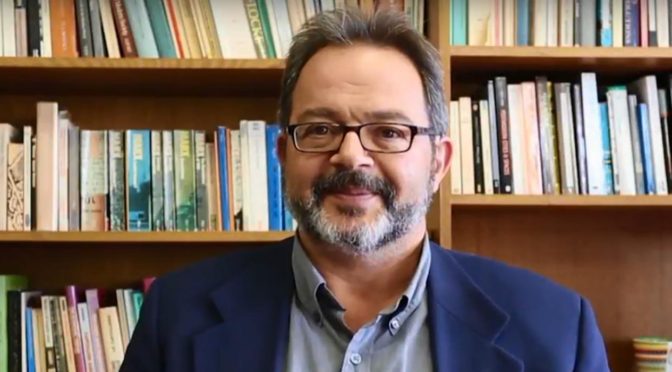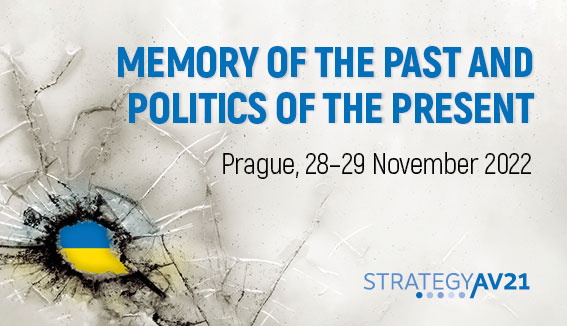Conservative mobilizations in Central Eastern Europe in transnational perspective
International Conference
Date: 8-9 December 2022
Location: CEFRES Library
Organizers:
– CEFRES
– Institute of Political Studies, Faculty of Social Sciences, Charles University
– Research Group (GDR) “Connaissance de l’Europe médiane”, CNRS,
– The French Ministry of Higher Education and Research – PARCECO Programme
Convenors: Anemona Constantin (CEFRES / Charles University), Valentin Behr (CNRS, Centre Européen de Sociologie et de Science Politique)
Language: English, French
Program
Day 1, 8 December 2022
09:30 : Welcome coffee & snacks
10:00 : Opening remarks, Mateusz Chmurski, Director of CEFRES
10:15 : General introduction, Valentin Behr & Anemona Constantin
10:30–12:00 – Panel 1 – Intellectuals’ engagements and the transnational circulation of ideas
Chair : Ronan Hervouet (CEFRES / Université de Bordeaux)
Discussant: Jakub Franek (IPS, Faculty of Social Sciences, Charles University)
10:30 : Alihan Mestci (CESSP, Paris I University/CNRS/ EHESS), “Erdoğan regime. The expertise on the issue of the “legitimate culture”
10:50 : Anemona Constantin (CEFRES / IPS, Faculty of Social Sciences, Charles University), “How the conservative intellectuals do mobilize? Reflections on the emergence of a conservative International”
11:10 Discussion
11: 30 : Q&A
12.00-13.30: Lunch
13:30–15:30 – Panel 2 – Espaces intermédiaires et registres de mobilisation conservatrice
Chair: Michèle Baussant (ISP-CNRS / ICM / CEFRES)
Discussant: Annie Collovald (ISP-CNRS / Paris Nanterre University)
13:30 : Marie-Hélène Sa Vilas-Boas (CREDA, IHEAL / ERMES / Paris 3 University – Côte d’Azur University) “The ‘truth’ as a programm. Production of the political offer and religious references among the Bolsonarists in Rio (online)
13:50 : Aurélie Stern (CETOBaC, EHESS / Galatasaray University), “All descendants of Attila? The Turkish presence at the Macar Turan Kurultayı identity festival in Hungary.”
14:10 : Adrien Nonjon (CREE, INALCO), “Technology as a tool of the conservative renewal in Baltic space? The case of the prometheist new-right wings”
14:30 : Discussion
14:50 : Q&A
15.30-16.00: Coffee break
16:00–18:30 –Panel 3 – Late socialism and illiberal post-communism in perspective
Chair: Valentin Behr (CESSP, Paris I University / CNRS / EHESS) & Anemona Constantin (CEFRES / Charles University)
16:00 : Michal Kopeček (Czech Academy of Sciences): “Compromise in the Rule-of-Law: politics of liberal constitutionalism and the Rule of Law doctrines in East Central Europe after 1989”
16:20 : Laure Neumayer (Picardie University “Jules Verne”): The transformations of Central European anti-Communism after 1989
16:40 : Jérôme Heurtaux ( Paris-Dauphine University) : “When left-wing historians and activists re-read the communist past in Poland” (online)
17:00 : Julian Waller (IERES / George Washington University) (online): “‘Illiberalism’ in the East but ‘postliberalism’ in the West? Conceptualizing and mapping ideological dissent from Eastern Europe to America” (online)
17:20 : Discussion
17:40 : Q&A
18.30: End of Day 1
19:30 : Dinner
Day 2: 9 December 2022
9:00–11.00 – Panel 4 – Civil society and grassroots mobilizations
Chair: Valentin Behr (CESSP, CNRS)
Discussant: Pavel Barša (Faculty of Arts, Charles University)
9:00 : Eve Gianoncelli (Maison francaise d’Oxford) The forms and limitations of metapolitics: the case of the European Conservative (tbc)
9:20 : Marcin Ślarzyński (Institute of Philosophy and Sociology, Polish Academy of Sciences), “From the rituals of rebellion to the rituals of power? Local cultural and political practices of right-wing civil society organizations in Poland before and after taking power in 2015”
9:40 : Adrien Beauduin (CEFRES / Central European University), “Learning from the West? Western sources of the Czech parliamentary far-right”
10:00 : Discussion
10:20 : Q&A
11:00-11:30: Coffee break
11:30–13:30: Panel 5 – Legal order, moral order and illiberal identities within the conservative realm
Chair: Fedora Parkmann (CEFRES / Faculty of Arts, Charles University)
Discussant: Zora Hesová (Faculty of Arts, Charles University)
11: 30 : Natasza Quelvennec (CESSP, Paris I University / CNRS / EHESS), “Gender on trial. A legal think tank at the heart of the conservative international”
11:50 : Victor Hugo Ramirez-Garcia (LIPHA, Paris-Est Créteil University), “European institutions’ response to conservative backlash. The case of transnational justice and gender education”
12:10 : Paul Gradvohl (Paris 1 University), “Moral order, social order and (inter)nationalist circulations during the 20th and 21st centuries”
12:30 : Discussion
12:50 : Q&A
13:30: End of Day 2





